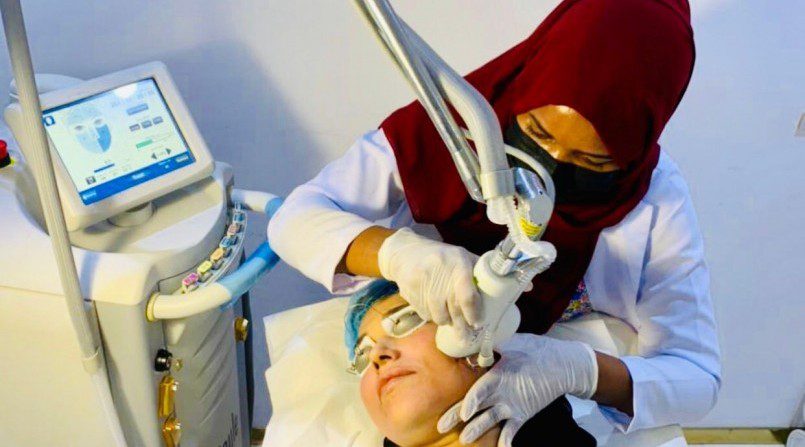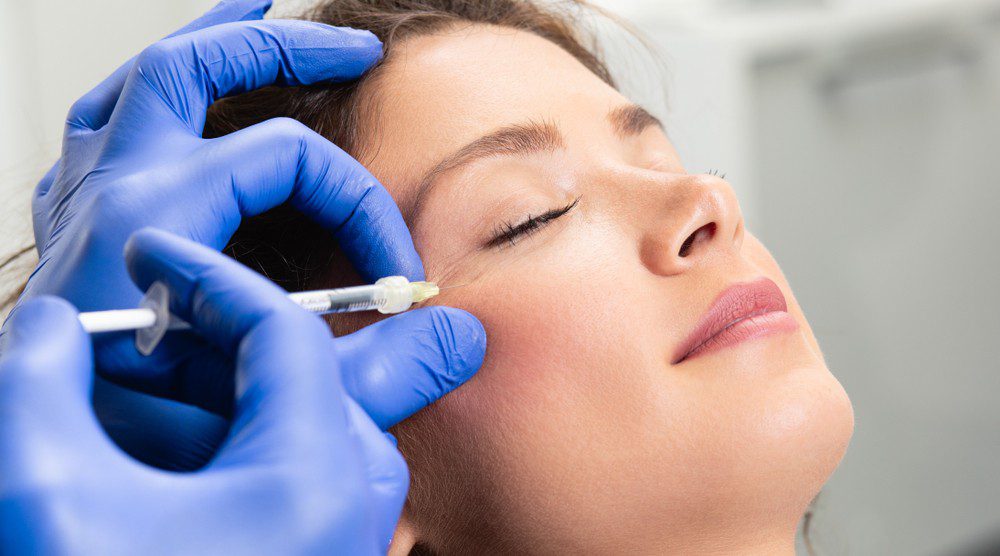Sexually Transmitted Disease (STD) Symptoms
What Are Sexually Transmitted Diseases (STD)?
Sexually Transmitted Diseases (STDs), also referred to as sexually transmitted infections (STIs), are infections that are primarily transmitted through sexual contact, including vaginal, anal, and oral sex. These infections can be caused by bacteria, viruses, parasites, and other microorganisms. Some common STDs include: Chlamydia, Gonorrhea, Syphilis, HIV, HSV (Genital Herpes), Hepatitis B, and Trichomoniasis. It’s important to get tested as soon as possible—either through a licensed at-home testing service or by visiting a trusted STD test clinic—to ensure timely diagnosis and treatment.
STD Symptoms & Types Of STD
Common Symptoms for HIV/Aids :
HIV (Human Immunodeficiency Virus) symptoms can vary widely depending on the stage of the infection and the individual's immune system. HIV infection progresses through several stages, each with its own set of symptoms.
Acute HIV infection (Early Stage) :
Fever, sore throat, lymph nodes swelling, rash, and muscle and joint pain, diarrhea, vomiting, and night sweats.
Clinical latency (Chronic Stage) :
Many people with HIV do not experience any signs of STD during this stage, which can last for several years if the infection is untreated.
Advanced stage :
Rapid weight loss, Recurring fever or profuse night sweats, Extreme and unexplained tiredness , Prolonged swelling of the lymph glands in the armpits, groin, or neck, Diarrhea that lasts for more than a week, and other STD symptoms that may be as severe as Memory loss, depression, and other neurological disorders
Common Symptoms for Genital Herpes :
STD Symptoms of genital herpes can vary widely between individuals, and some people may not experience any symptoms at all.
It starts with painful Sores or Blisters, which may appear on or around the genitals, anus, buttocks, or thighs. These sores can be painful or itchy. Pain or Burning Sensation, later, blisters may ulcerate.
Flu-Like Symptoms: Some individuals may experience flu-like symptoms such as fever, headache, muscle aches, and swollen lymph nodes during the initial outbreak or subsequent outbreaks.
Painful Urination, and vaginal discharge.
Common Symptoms for Syphilis
Syphilis is a sexually transmitted infection caused by the bacterium Treponema pallidum. It progresses in stages, with each stage presenting different symptoms. Here are the STD symptoms associated with each stage :
Primary stage :
The first symptom is usually a painless sore or ulcer called a chancre, which appears at the site of infection (typically the genitals, anus, or mouth) about 3 weeks after exposure.
The sore is firm, round, and small, and it heals within 3 to 6 weeks, even without treatment
Secondary stage :
This stage typically occurs a few weeks to months after the appearance of the chancre.
STD Symptoms may include a rash that can appear on the palms of the hands and soles of the feet, but can also affect other parts of the body. Other symptoms may include fever, swollen lymph nodes, sore throat, fatigue, headaches, weight loss, and muscle aches.
Latent stage :
In this stage, the infection is still present but there are no visible symptoms. It can last for years.
Without treatment, some individuals may progress to the tertiary stage.
Tertiary stage :
This stage occurs in about one-third of untreated individuals, usually several years after the initial infection.
Symptoms can vary widely and may affect various organ systems, including the cardiovascular system (causing aortic aneurysms or heart valve damage), the central nervous system (causing neurosyphilis, which can lead to dementia, paralysis, or sensory deficits), and other organs. Tertiary syphilis can be very serious and even life-threatening.
To learn more in-depth about Syphilis, its symptoms, diagnosis process, and treatment options, our detailed guide on Syphilis here.
Common Symptoms for Chlamydia :
Chlamydia is another common sexually transmitted infection (STI) caused by the bacterium Chlamydia trachomatis. It's one of the most prevalent bacterial STIs worldwide.
Many people with chlamydia don't experience any symptoms, especially in the early stages. When symptoms do occur, they typically manifest one to three weeks after exposure. STD symptoms can include :
- Painful urination
- Abnormal discharge from the penis or vagina
- Pain during sex
- Lower abdominal pain
- Rectal pain, discharge, or bleeding (if the infection is in the rectum)
- Eye infections (if infected fluids come into contact with the eyes)
If left untreated, chlamydia can lead to serious complications, especially in women. These can include pelvic inflammatory disease (PID), which can cause infertility, chronic pelvic pain, or ectopic pregnancy (a pregnancy outside the uterus). In men, complications can include epididymitis, an inflammation of the tube that carries sperm, which can lead to infertility if not treated. To learn more in-depth about Chlamydia, its symptoms, diagnosis process, and treatment options, our detailed guide on Chlamydia here.
Common Symptoms for Gonorrhea:
Gonorrhea is another common sexually transmitted infection (STI) caused by the bacterium Neisseria gonorrhoeae. Similar to chlamydia, many people infected with gonorrhea do not experience symptoms, particularly in the early stages. However, when symptoms do occur, they typically appear within 2 to 14 days after exposure and can include :
- Painful urination
- Abnormal discharge from the penis or vagina (yellowish or greenish in color)
- Pain or swelling in the testicles (in men)
- Increased vaginal discharge (in women)
- Rectal discomfort, discharge, or bleeding (if the infection is in the rectum)
- Sore throat (if the infection is in the throat)
- Conjunctivitis (if infected fluids come into contact with the eyes)
If left untreated, gonorrhea can lead to serious health problems. In women, untreated gonorrhea can cause pelvic inflammatory disease (PID), which can lead to infertility, ectopic pregnancy, or chronic pelvic pain. In men, complications can include epididymitis, which may result in infertility. Both men and women can also develop disseminated gonococcal infection (DGI), a rare but serious complication that can affect multiple organs and cause joint pain, fever, and skin lesions. To learn more in-depth about Gonorrhea, its symptoms, diagnosis process, and treatment options, our detailed guide on Gonorrhea here.
Common Symptoms for Trichomoniasis
Trichomoniasis is a sexually transmitted infection (STI) caused by a parasite called Trichomonas vaginalis. Many people with trichomoniasis do not experience symptoms, but when they do occur, they typically appear within 5 to 28 days after exposure. For women, symptoms can include:
- Abnormal vaginal discharge (often frothy, yellow-green, or gray in color),
- Itching or irritation in the genital area,
- Pain or discomfort during urination or sexual intercourse
In men, STD symptoms can include urethral discharge or irritation, but they are less common than in women.
Untreated trichomoniasis can lead to various complications, including an increased risk of acquiring other sexually transmitted infections, such as HIV. In pregnant women, trichomoniasis may contribute to preterm birth or low birth weight in infants.
Common Symptom for Hepatitis B :
Hepatitis B is a viral infection that primarily affects the liver. While it's not exclusively transmitted through sexual contact, it can indeed be considered a sexually transmitted infection (STI) because sexual activity is one of the ways the virus can spread from person to person. Common modes of transmission include :
- Unprotected sexual intercourse with an infected person (including vaginal, anal, and oral sex)Unprotected sexual intercourse with an infected person (including vaginal, anal, and oral sex)
- Sharing needles or syringes contaminated with infected blood (such as for injecting drugs)Sharing needles or syringes contaminated with infected blood (such as for injecting drugs)
- Transmission from an infected mother to her newborn during childbirthTransmission from an infected mother to her newborn during childbirth
Symptoms
Many people with hepatitis B do not experience symptoms, especially in the early stages of infection. When symptoms do occur, they can include: Fatigue, Jaundice (yellowing of the skin and eyes), Dark urine, Abdominal pain, Nausea and vomiting, Loss of appetite, Joint pain
When To See A Doctor For STD
It's important to seek medical attention if you suspect you may have been exposed to a sexually transmitted infection (STI) or if you're experiencing symptoms suggestive of an STI. Here are some specific situations in which it's advisable to see a doctor for an STI :
Symptoms :
If you experience STD symptoms such as unusual genital discharge, pain or discomfort during urination or sexual intercourse, genital sores or ulcers, itching or irritation in the genital area, or any other unusual symptoms in the genital, anal, or oral areas, it's important to see a healthcare provider promptly for evaluation and testing.
Recent Sexual Contact :
If you've had unprotected sexual contact with a new partner, multiple partners, or a partner whose STI status is unknown, it's a good idea to get tested for STIs, even if you don't have STI symptoms. Some STIs can be asymptomatic or have mild symptoms that may go unnoticed.
Partner Diagnosis :
If your sexual partner has been diagnosed with an STI, it's recommended that you get tested as well, even if you don't have STI symptoms. Many STIs can be transmitted even if the infected person doesn't have noticeable symptoms.
Pregnancy or Planning for Pregnancy :
If you're pregnant or planning to become pregnant and have concerns about STIs, it's important to discuss this with your healthcare provider. Certain STIs can have serious implications for pregnancy and childbirth, so early detection and treatment are crucial for prevention of std .
Conclusion
In conclusion, the prevalence of sexually transmitted diseases (STDs) remains a significant public health concern worldwide. Despite advancements in diagnosis, treatment, and prevention, STDs continue to affect millions of individuals each year, with potentially severe consequences for their health and well-being. From the importance of practicing safer sex and open communication with sexual partners to regular testing and vaccination, proactive measures are essential in combating the spread of STDs. Education and awareness play a crucial role in empowering individuals to take control of their sexual health and make informed decisions. By fostering a culture of responsibility, support, and access to healthcare services, we can strive towards a future where STDs are effectively prevented, diagnosed early, and treated promptly, ensuring the well-being and safety of all individuals in our communities.
Most Popular:
-

Sciton HALO vs Sciton BBL
Read More »September 20, 2022 -

What is profhilo, and how is it different from fillers?
Read More »September 20, 2022 -

Body contour solutions from SKIN111
Read More »September 20, 2022 -

Does IV GLUTATHIONE therapy work
Read More »September 20, 2022 -

How can an IV drip help you boost your energy
Read More »September 20, 2022